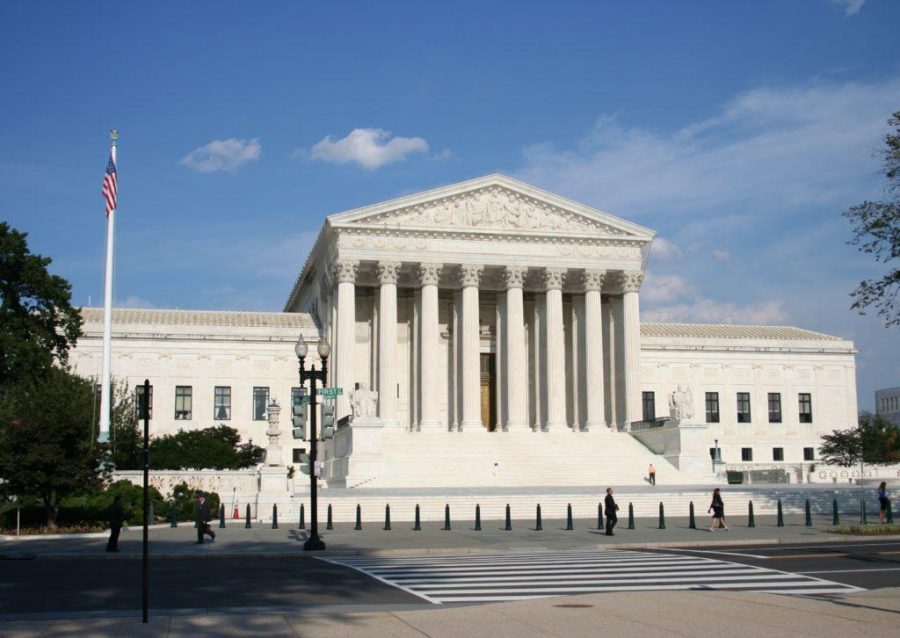Burton: Repealing the ACA Would Be Legally and Politically Reckless
July 8, 2020
The Affordable Care Act was arguably the Obama administration’s crowning achievement, offering millions of Americans cheaper access to health insurance. The ACA has remained steadfast throughout Donald Trump’s presidency, during which he has overturned many Obama-era policies, but efforts to overturn it are still fierce. Right now, 18 states — including Utah — are plaintiffs in a high-profile lawsuit against the federal government over the law’s constitutionality. With COVID-19 bringing the structure of the American healthcare system into question, this effort to undo the relatively progressive ACA is politically risky and poses a threat to millions of Americans.
Signed into law in March 2010, the ACA has most notably provided health insurance protections to people with pre-existing conditions, widespread Medicaid expansion throughout the nation and affordable insurance coverage for roughly 20 million people. The progress of the ACA has been challenging. The disastrous Health.gov launch demonstrated poor initial management, higher premiums are unpopular with many and several judicial challenges to the law’s existence have all marred its overall positive influence. Still, even Utah has a considerable enrollment in the program – perhaps because, despite its politicization and controversy, the ACA provides many people with financial safety against the costly prices of healthcare in the United States. As with every law, it is not perfect, but the ACA is a positive for a considerable portion of Americans.
The current opposition against the ACA is alarming given recent upticks in coronavirus cases and economic turmoil in Utah and nationwide. These concentrated efforts have been criticized widely not only by Democrats and some Republicans but also by healthcare professionals. Texas v. United States is clearly a coordinated partisan movement, and while maneuvers along party lines have become an all too common banality in American civics, the timing could not be worse. Joel White, a Republican strategist specializing in health care, sums up this move nicely, “Politically, it’s pretty dumb to be talking about how we need to repeal Obamacare in the middle of a pandemic.” And, frankly, it would be foolish even if a global health crisis was not dominating the conversation since Republicans do not have a replacement healthcare plan — the last one failed.
As law professor Nicholas Bagley explains in his recent Atlantic article, the argument against the ACA revolves around its mandate that everyone must purchase health insurance or pay a penalty. If this mandate coerced people to buy insurance, it would be considered unconstitutional. However, if the penalty for no insurance was a tax — thereby giving choice to the person — this constitutional problem would be considered null. In 2017, lawmakers removed the penalty for not having insurance to allow people a smoother transition from one insurance provider to another, giving the appearance that the tax mandate was no longer there and making the mandate seem coercive.
Under these rather overwrought arguments, Republican attorneys present the case that the entire ACA law is invalid. If the Supreme Court overturns the ACA on these meager precedents, the consequences will be immense. Millions more will go uninsured, health infrastructure will be disrupted and the federal deficit will balloon — a phenomenon unpopular with many politicians, including both Democrats and Republicans. In Utah, 273,000 people will lose their health insurance if the Supreme Court repeals the ACA, making them vulnerable to the threat of lower access to quality health care as well as heftier costs and, ultimately, medical debt. Given the current pandemic, this uninsured demographic is even more at risk.
With renewed attention on national health care infrastructure, the plaintiffs of the Texas v. United States seeking to overturn the Affordable Health Care Act are playing a dangerous partisan game, the consequences of which will have serious effects on their constituents and the GOP. What would seem to be a victory in the short-term may cost Republican leaders their jobs and uninsured Americans their lives further down the road.








